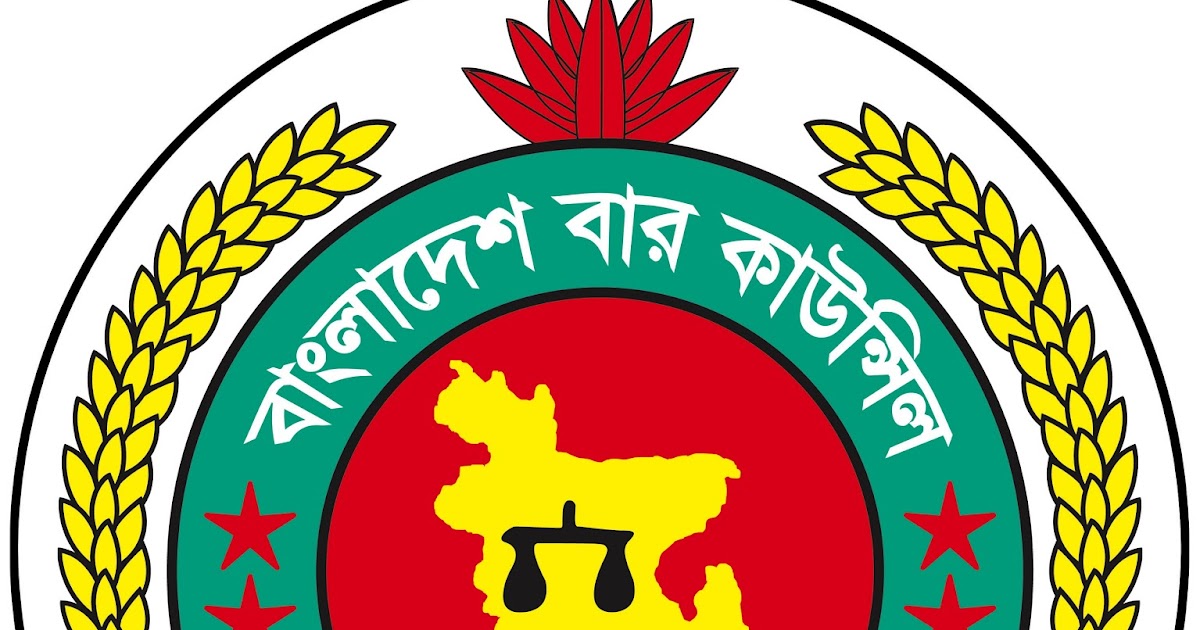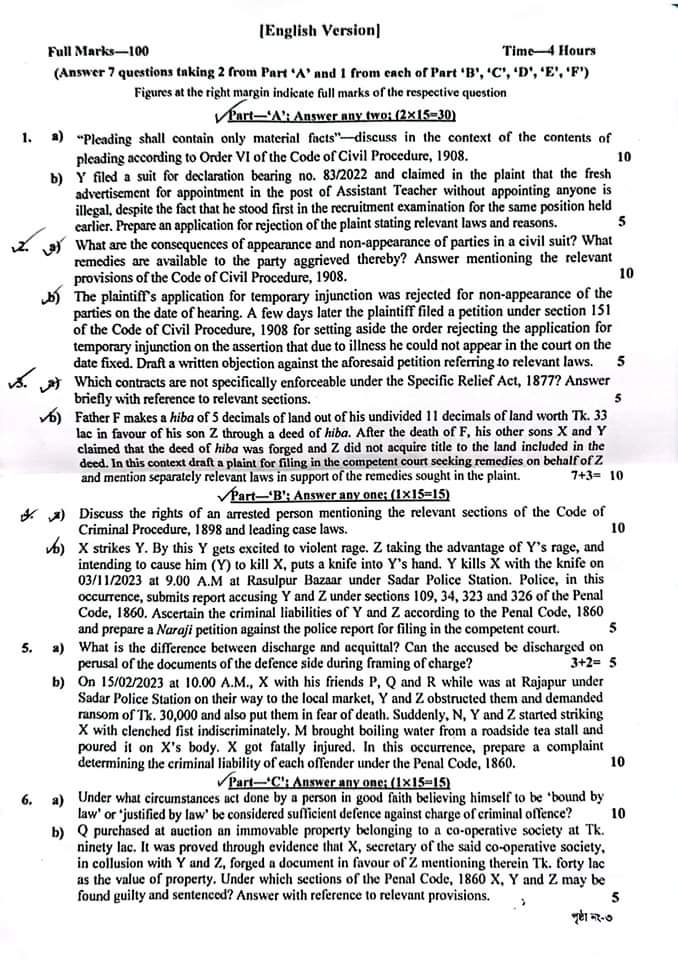A Guide to Cheque Dishonour Case in Bangladesh: Section 138 of the Negotiable Instruments Act, 1881
Dishonour of Cheque:
Three types of instruments i.e. promissory note, bill of exchange and cheque are recognized as negotiable instruments under section 13 of the Negotiable instruments Act, 1881. Section 6 of the said Act defines cheque as “a bill of exchange drawn on a specified banker and not expressed to be payable otherwise than on demand.” In other words cheque refers to an order to a bank to pay some specified amount from the drawer’s account to a bearer or order of the cheque. However, Checks are used for payment of liabilities or debts for various purposes in daily life.
If a cheque is issued by a drawer to pay some amount, the bank is bound to pay the same to the bearer or the order whichever suits. But in many cases, the bank cannot proceed to payment due to insufficiency of balance in the drawer’s account or other default from his part. If the cheque is dishonoured due to insufficiency of balance or any other default of the drawer, he is punishable under law. Section 138 of the Negotiable Instruments Act, 1881 clearly identifies the dishonour of cheque as an offence.
Sections 138, 140 and 141 of the Negotiable Instruments Act, 1881 contain the rules regarding punishment and other issues of cheque dishonour. Though the cause of action is of civil nature, cheque dishonour is enacted under aforesaid provisions as offence to give the aggrieved person easy, speedy and special remedy for recovering debts as well as to ensure punishment for irregularities made in dealing with cheques. Here is the discussion of cheque dishonour case for making the law students aware of every details of this issue on which a large number of cases are being filed and pending in the concerned courts.
Conditions of Cheque Dishonour Case:
Section 138(1) & 141(c) of the Negotiable Instruments Act, 1881 read with case laws provide some conditions of filing a cheque dishonour case as well as the punishment of this offence. However, the cause of action for filing a case under this section, arises on the satisfaction of following conditions:
- The first and foremost condition for filing a case under this section is that the cheque must be presented to the concerned bank for the encashment within six months from the date of issue by the drawer or within the period of its validity, if the time of drawing is specified, whichever is earlier.
- The cheque must be returned by the bank unpaid, either because of the amount of money standing to the credit of that account is insufficient to honour the cheque or that it exceeds the amount arranged to be paid from that account by an agreement made with that bank.
- The drawer has to be served notice to the drawer about the dishonour of cheque within 30 (thirty) days of being dishonoured by the concerned bank.
- If the drawer of the cheque fails to pay the debt or to resolve the issue within next 30 (thirty) days, the cause of action for filing a case under this section will arise.
- After the expiry of above thirty days, the drawee can file a case under this section within 1 month starting from the date of cheque dishonour (section 141(c)). But, If for any reason a case under section 138 of the Negotiable Instruments Act, 1881 cannot be filed within the stipulated time of 1 month, a criminal case can be filed under Sections 406 and 420 of the Penal Code.
The cheque must be issued for consideration: Another important stipulation is that if the 'Consideration' for which the check was given is not met or if there is no 'Consideration', the check drawer has no liability. The Appellate Division of the Supreme Court gave a landmark judgment in respect of cheque dishonor in the case of Md. Abul Kaher Shahin Vs. Emran Rashid and another, (14 SCOB [2020] AD) . According to the judgment, “as per Section 43 of the NI Act, a negotiable instrument made, drawn, accepted, indorsed or transferred without consideration, or for a consideration which fails, creates no obligation of payment between the parties to the transaction” Thus, the respondent’s instruction not to encash the impugned cheques does not constitute any cause of action under section 138 of the Negotiable Instruments Act, 1881. The same view was taken into consideration by the Appellate Division in in the case of Mahmudul Hasan Vs The State and another (Criminal Appeal No. 10468 of 2017)
Thus the preceding conditions must be complied with before filing a cheque dishonour case.
Punishment:
If the above conditions are satisfied, the person committing the offence of cheque dishonour shall be punished with imprisonment for a term which may extend to one year, or with fine which may extend to thrice the amount of the cheque, or with both. (Section 138(1))The holder of the cheque up to face value of the amount realized as fine in such case. (Section (138(2))
Modes of Service of notice:
No direct suit can be filed without sending a notice in any way as stipulated by section 138(1) of the NI Act, 1881. Section 138 (1A) provides the following modes of serving the notice:
- by giving the notice directly to the drawee i.e. serving the notice in person
- by sending it by registered post with acknowledgement due to that person at his usual or last known place of abode or business in Bangladesh
- by publication in a daily Bangla national newspaper having wide circulation.
However, the notice under this section can be served following any of the above-mentioned methods. For the above discussion, it is clear that service of notice to the drawer within thirty day of the dishonour of cheque is mandatory. In this regard question was raised in Abul Kalam Azad vs. State (61 DLR (2009) 91) whether a single notice is enough for several dishonoured cheques or notices have to be served for every single dishonoured cheque. The HCD held in this issue that “single notice for several dishonoured cheques is not acceptable” (Ibid). However, the drawee has to serve notice for every individual dishonoured cheque otherwise the service will not be regarded as duly served as stipulated under section 138 of the Negotiable Instrumrnts Act, 1881.
Locus Standi: Section 138 says that the payee or the holder in due course can file a case under this section. However, only the person or institution to whom the check is issued or a holder in due course can sue.
Persons
against whom a case under secion 138 can be filed:
Normally the person who issues the cheque is liable to punishment under this
section. But section 140 of the NI Act,
1881 provides that if the person committing an offence under section 138 is
a company every person who at the time the offence is committed was in charge
of and was responsible to the company shall be deemed to be guilty of the
offence and shall be liable to be proceeded against and punished accordingly.
In Islami Bank Bangladesh Ltd. Vs. Ferdous Khan @ Alamgir Khan and another (1) LNJ (AD) 1) it was held by the Appellate Division of the Supreme Court held that:
“The liability under section 138 of the Act can be termed as a strict liability where a cheque has been returned to the payee having been dishonoured by the bank unpaid, either because of the amount of money standing to the credit of that account is insufficient to honour the cheque or that it exceeds the amount arranged to be paid from that account then the person, issuing the cheque is strictly liable. The person, who issued the cheque, whether on his own behalf or on behalf of a company of which he is in charge or for which he is responsible cannot escape liability under the Act. In such circumstances the proceeding against the accused cannot be quashed. If for any reason the company is not prosecuted, the other persons who are in charge of the affairs of the company or have knowledge about the affairs of the company cannot escape from criminal liability if they are served with the notice.”
Non-applicability of Res-judicata/double jeopardy:
As per section 138(3) of NI Act, the holder of the cheque shall not be ousted from bringing any claim through civil court, if whole or any part of the value of the cheque remains unrealised through a cheque dishonour case. Again,, if the drawee institutes a civil suit for recovery of money, that will not be a bar cheque dishonour case. The Appellate Division in the case of Arifuzzaman vs. the state and another (18 MLR (AD) (2013) 251) held that civil suit is not a bar in filing criminal case under sec 138 of the Negotiable Instruments Act, 1881 because the right of a person to recover money under this section cannot be restricted by mere fact of filing a suit in civil court.
Courts to try and take cognizence of the offence:
The payee or the holder of the cheque in due course must file a complaint in writing otherwise no court shall take cognizence of any offence punishable under section 138 (Section 141(a)). As it is a complaint or CR case, the case has to be filed in a first class magistrate court within the jurisdiction of which the bank is located. But in case of trial, no court inferior to that of a Court of Sessions shall try any offence punishable under section 138.
Appeal:
An appeal against the judgement made in a case filed under section 138 can be filed in the appellate court subject to deposit by the appellant an amount of not less than fifty percent of the amount of the dishonoured cheque. (Section 138A)
Offences of Companies:
Section 138 as well as Section 140 of this Act should be mentioned in case of fraud through any institution.
Contents of the Complaint:
The contents of complaints brought under section 138 and other related documents are as follows:
- In the complaint some fundamental of the case i.e. the name of check issuer, date of payment, date of dishonour, name of bank and branch, account number, check number and amount of money and if the check is issued by a company or organization, the name, designation and name of the issuing officer should be mentioned.
- Original cheque, dishonour receipt, copy of legal notice or notification, postal receipt, receipt should be produced in court while filing the case.
- Photocopies of these should be submitted along with the application form in the form of application form
- After the filing of the case, special pleadings should be made for the speedy issuance of summons and warrants so that the accused appears.






